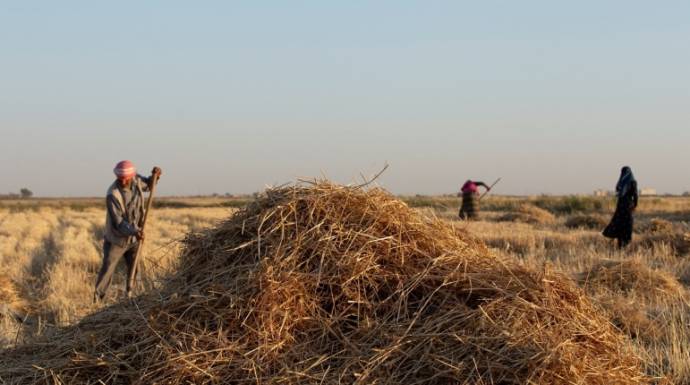Report: Deterioration of Agricultural Production in Syria Threatens Food Security for 16 Million Citizens

The Food and Agriculture Organization of the United Nations (FAO) has warned of the harsh climatic conditions' repercussions on the Syrian agricultural sector, which have affected around 2.5 million hectares of wheat fields, putting more than 16 million Syrians at risk of food insecurity.
Haya Abu Assaf, FAO's assistant representative in Syria, emphasized in statements reported by Agence France-Presse that the current agricultural season has witnessed the worst climatic conditions "in nearly 60 years," expecting the Syrian authorities to increase reliance on imports to bridge the gap.
The organization explained that 75% of cultivated areas and natural pastures used for animal production have been affected by drought, as Syria experienced "a short winter season and a decrease in rainfall." Abu Assaf pointed out that "nearly 95% of rain-fed wheat was damaged, while irrigated wheat saw a production decrease of 30 to 40% compared to normal rates."
According to FAO estimates, this decline will create a "gap" in wheat production ranging from 2.5 to 2.7 million tons, threatening 16.3 million people with food insecurity during the current year.
On the other hand, the Syrian Ministry of Economy and Industry has set the purchase price of wheat between 290 and 320 dollars per ton depending on the quality, with an additional incentive bonus of 130 dollars per ton, according to Decree No. 78 issued by President Ahmad Al-Shar'a on the 11th of this month, aiming to encourage farmers to deliver their crops to the Syrian Grain Establishment.